In this interview, we explore the innovative work of Wastelink, a sustainability-focused company tackling food waste in India. With four upcycling facilities processing 15,000 tons of food waste annually, Wastelink partners with over 18,000 distributors and leading companies like Unilever and Tata Consumer. We delve into the inspiration behind Wastelink's founding, its unique B2B platform that transforms surplus food into animal feed ingredients, and the company's mission to create a more sustainable food supply chain while supporting Net-Zero and Zero Waste goals.
Mr. Saket Dave, Wastelink's Founder and CEO, shares his vision for driving the circular economy and the company's impactful journey in mitigating climate change and empowering local communities.
Scroll down to read the full interview.
Q&A
Q. Can you share the pivotal moment or insight that led to the founding of Wastelink in 2018, and how the company's mission has evolved since then?
A. During my second year of engineering in 2011 at Thapar University in Punjab, I was astonished by the substantial food wastage in our student kitchen and mess facilities. I got friends together and we established a composting system to convert this waste into fertilizer, which we then sold to nearby farmers. This venture sparked my interest in waste management, leading me to dedicate the next seven years to waste recycling as a passion, assisting companies and non-profits in Delhi to adopt zero-waste practices. It was through these endeavours that the concept of Wastelink took shape, prompting me to leave my job in 2018 and commit to the idea full-time.
Wastelink serves as a solution for food manufacturers to handle excess produce in their supply chains and uncover hidden value in their food waste by repurposing it into ingredients suitable for livestock feed, energy generation, or novel food inputs. By doing so, Wastelink mitigates carbon emissions that typically arise from landfilling or incinerating food waste, the predominant disposal methods today.
Q. Can you elaborate on how Wastelink's technology platform tackles food waste, reduces emissions, and promotes a more sustainable food supply chain, including how it manages returns and revenue streams for your partners?
A. Wastelink's digital platform and expertise in nutrition science are uniquely positioned to unlock the value we provide to food manufacturers, while creating positive outcomes for the environment.
Our service offering is structured around four key components:
- Traceability: We offer comprehensive visibility and monitoring of every batch of food waste from our partner suppliers to its final destination. This is facilitated through a dedicated digital platform designed specifically for tracking food waste.
- Nationwide reverse logistics for food waste: We collaborate closely with our suppliers to ensure seamless logistics from all their operational sites across India. Effective transportation of food waste relies on precise timing, and we have developed a reverse supply chain tailored to meet this requirement.
- Upcycling: Our innovative upcycling technology allows us to create new and unique ingredients at our processing centers located throughout India.
- Sustainability: We guarantee the complete upcycling of both food and packaging materials, providing an environmentally responsible solution to food waste on a large scale.
Our core focus lies in repurposing surplus food, which is central to our operations. The transformation occurs at our upcycling centres, where we process over 25,000 metric tons of food surplus and waste annually. These centers house our innovative processing technology, led by a multidisciplinary team of food scientists, veterinarians, and chemical engineers. It's noteworthy that, for the first time in India, we're generating upcycled ingredients from food waste on such a significant scale. Moreover, the environmental impact is substantial; for every tonne of food we repurpose, we mitigate 3 tonnes of CO2 emissions.
Q. What were some of the major challenges Wastelink faced during its growth, and how did you and your team overcome them?
A. Our strategy towards tackling food waste is innovative and the first of its kind in India. While global models for upcycling food waste into feed exist, none have been implemented in India. We've had to dive in and address various challenges, such as identifying effective methods for food waste upcycling for suppliers, establishing a reverse logistics network covering over 1500 pin codes, and developing nutrition science and processing technology capable of handling numerous types of food and packaging on a large scale.
We are fortunate to have a great team who has rolled up their sleeves to innovate solutions to overcome these challenges. We have committed ourselves extensively in research and development to create nutrition science and processing technology capable of managing diverse food types and packaging at scale. This hard work has ultimately paved the way for a groundbreaking solution to food waste management in India.
Q. Looking back at Wastelink's journey since its founding in 2018, what has been the most personally rewarding aspect of driving positive environmental and social impact through Wastelink's work?
A. I am a climate activist who believes in being part of the solution to the climate problem. Wastelink has been a truly magnificent manifestation of my personal ambition to make a positive climate impact on the world. It gives me immense pride to be leading a home-grown climate story that is able to create both environmental and economic impact in India.
Q. How does Wastelink envision its role in driving the circular economy revolution and supporting sustainable food systems in India and beyond?
A. Solving the food waste crisis needs a community led movement. We cannot leave the ownership of this problem on the government to fix. In India, there is still a feeling that food waste is biodegradable, and hence we should not worry about it. Instead, other types of waste such as plastic and electronic wastes are bigger problems as they do not decompose. Narratives like these create a false sense that all is ok on the food waste front in India, even though in terms of volumes produced food waste exceeds all other waste categories. It is also the only waste category that is directly linked with climate change. In fact, fumes rising out of our landfills because the food waste there decomposes into methane – a greenhouse gas four times more potent than CO2, can be observed from space! Wastelink has been an active voice on raising awareness of this urgency on several forums online and offline through events, partnership with non-profits, and media engagement. And we didn’t want to just be an activist voice, so we built a business to solve this in an economic and environmentally sustainable manner.
Q. How has Wastelink's work impacted local communities, and what initiatives does the company undertake to promote sustainable practices outside of its immediate operations?
A. Our work has positively impacted local communities across various dimensions.
Our operations mitigate carbon emissions from food waste by diverting food that would otherwise decompose and emit methane, a potent greenhouse gas, into the atmosphere, contributing to climate change mitigation efforts. This reduction in landfill waste also minimizes the need for additional landfill space, easing the burden on local waste management infrastructure.
Economically, our business generates employment opportunities and stimulates local economies. It is worth highlighting that over 50% of our factory staff are women, and they continue to play a significant role in leading our recycling operations. Additionally, in several activities ranging from collection and sorting to processing and distribution, various jobs are created, providing livelihoods for community members.
Q. Wastelink partners with industry leaders like Unilever and Tata Consumer. What inspired these partnerships, and how do these collaborations shape Wastelink's strategies and impact on the food industry?
A. Wastelink’s approach to food waste management is unique because we believe that not all food waste is equal. Therefore, food that is within shelf life, must be harnessed for its nutrition to generate value. We also believe that this value must be shared with our supplier partners so that managing surplus and waste is not a cost burden for them but a revenue source that can incentivise better waste management in their own ecosystem. This strategy has shaped our collaborations and the solutions we offer to food manufacturers of all sizes. We put their goals and needs front and centre and then design our services to cater to them. This approach has been the primary reason why several of India’s largest food brands have been our biggest champions.
Q. Considering the vast potential of food waste reduction, how can your business model be adapted or scaled to address food waste challenges on a global scale?
A. Food waste is a major global problem. 1/3rd of all food produced in the world is wasted. If food waste was a country, it would be the third largest greenhouse gas emitter after the US and China. All of the food wasted in the world is sufficient to provide over 50 billion meals, enough to wipe off global hunger.
Wastelink has pioneered a food upcycling technology that works across various types of food sources. Our upcycled products are uniquely positioned to create positive value for feed customers across the world. In fact, some of the biggest global feed players are among our biggest customers in India. This allows us an amazing opportunity to take our ‘Made-in-India’ recycling technologies to the world.
Q. What are Wastelink's future goals and vision for expanding operations and impact? Are there any upcoming projects or strategies that you can share?
A. Over next 3 years, we target to upcycle over 1 million tonnes of food annually into sustainable ingredients trusted by India’s top feed, fuel and food brands. In doing so, we will be saving 3 million tons of CO2 each year for India.




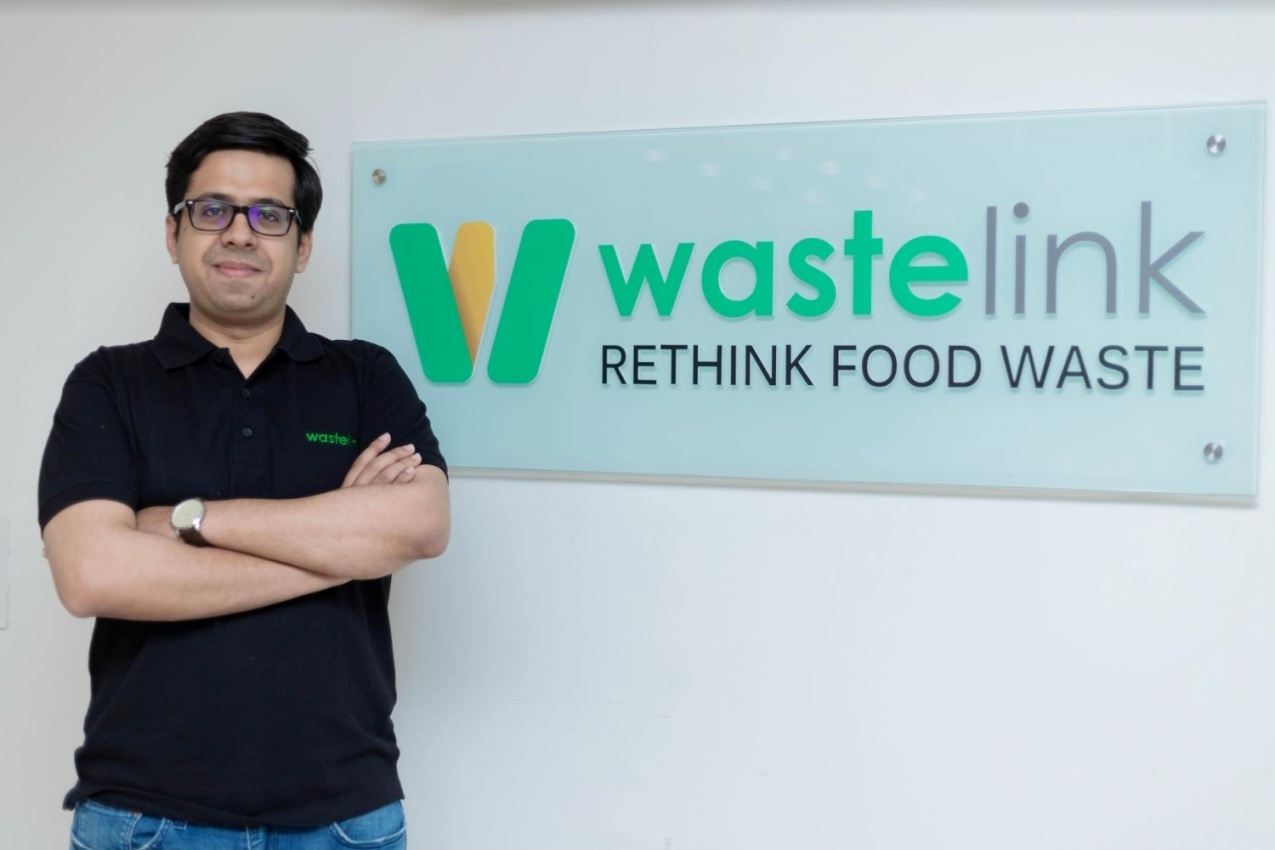
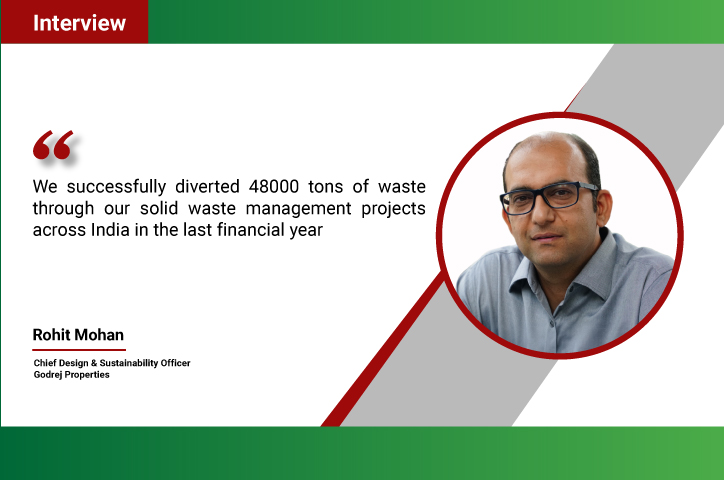
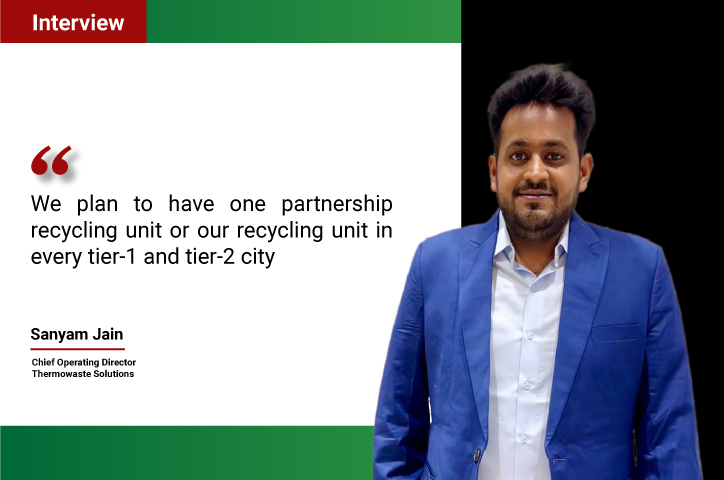
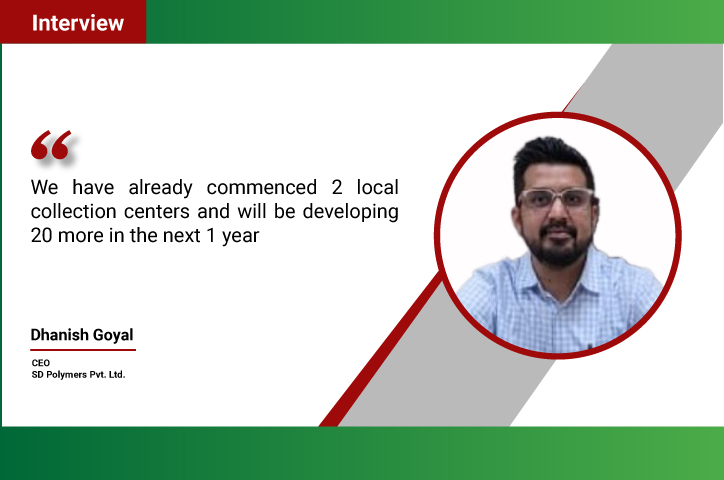
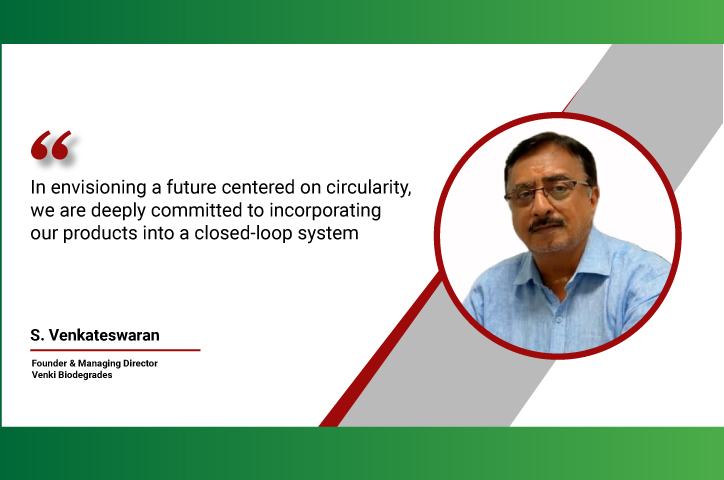
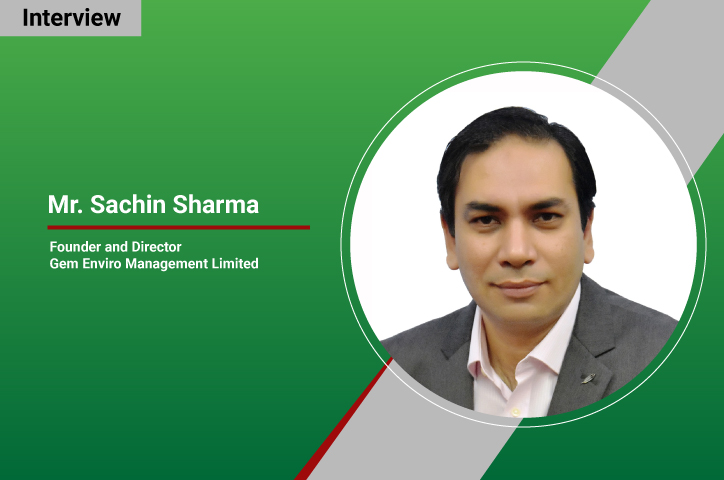
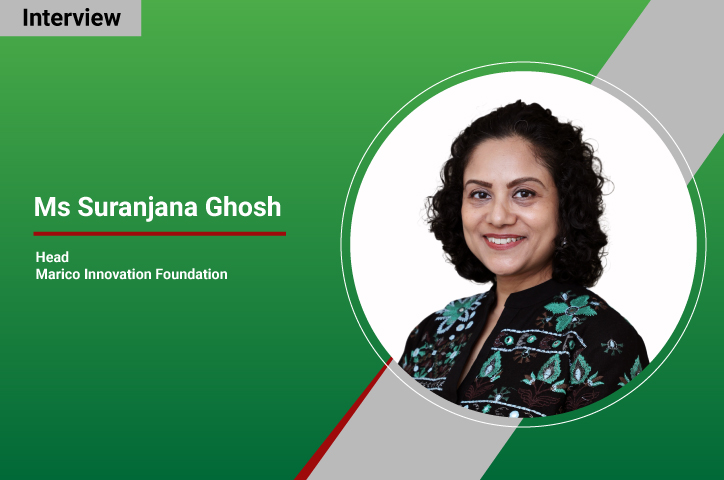

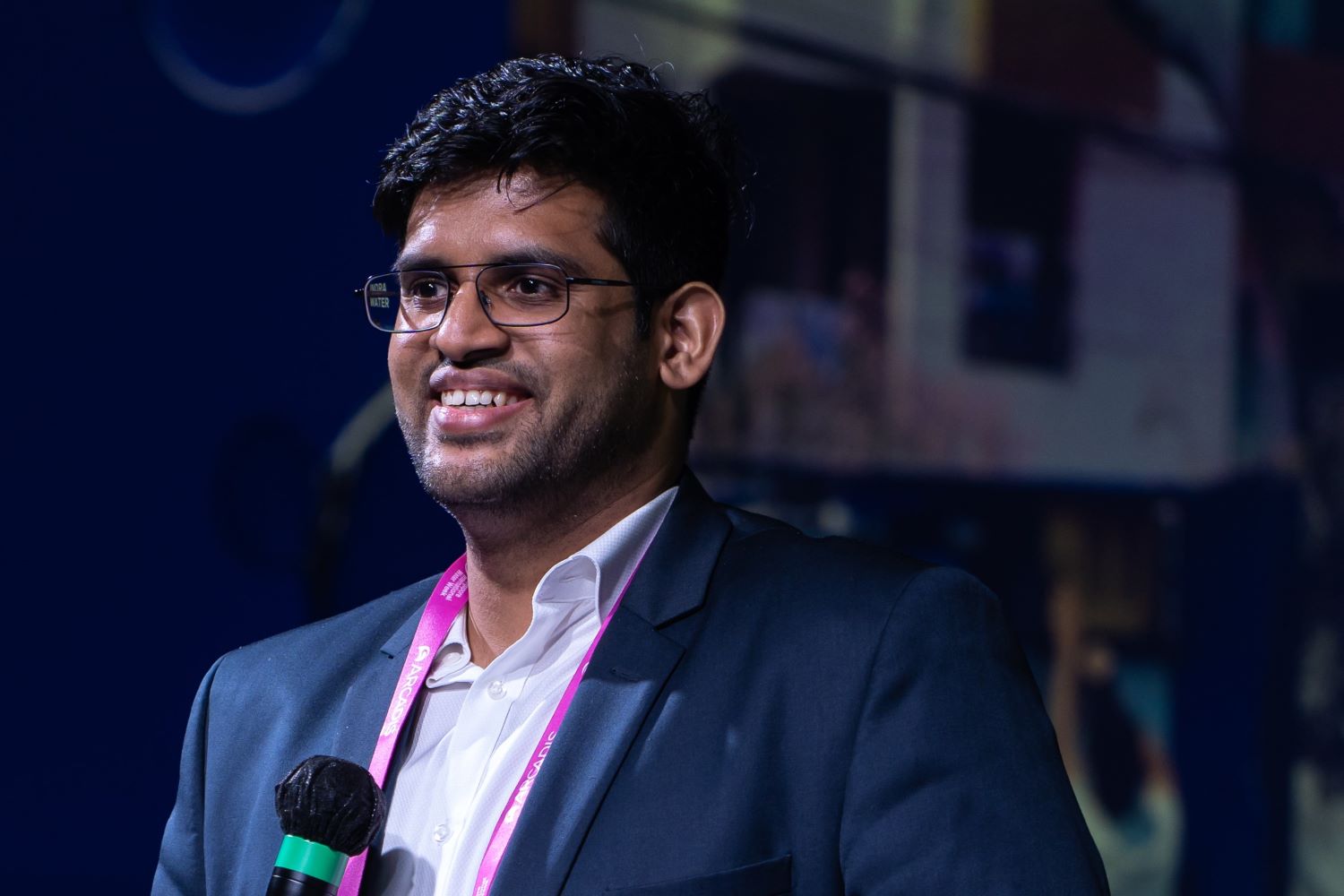







.jpg)



